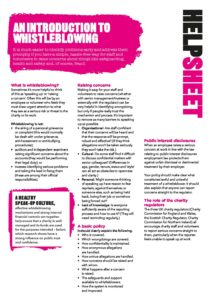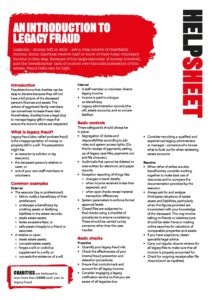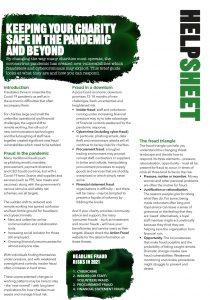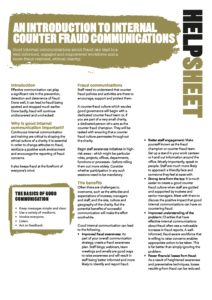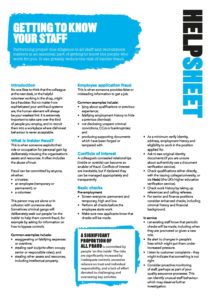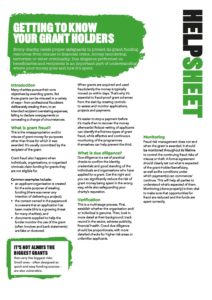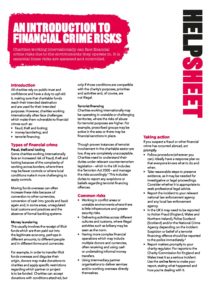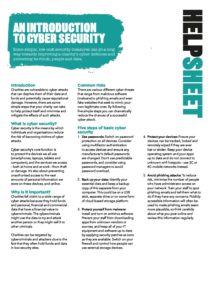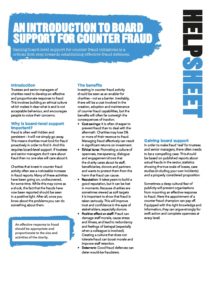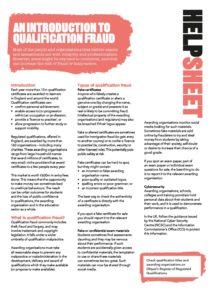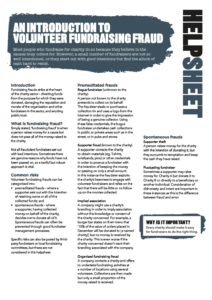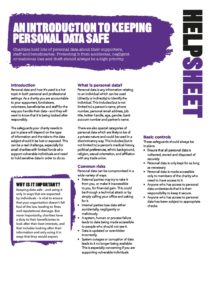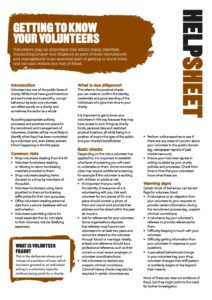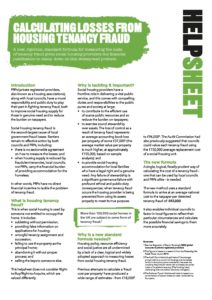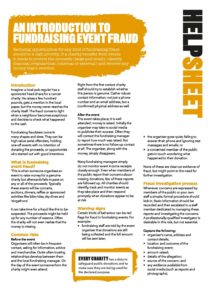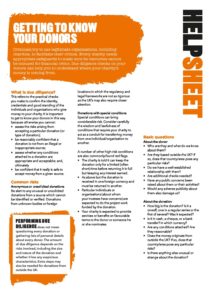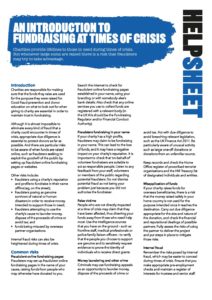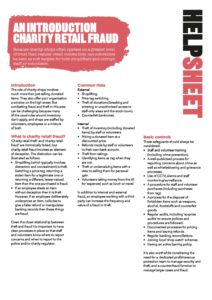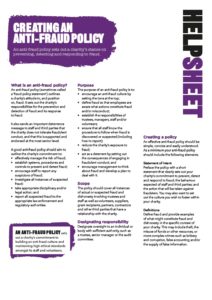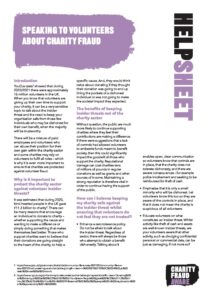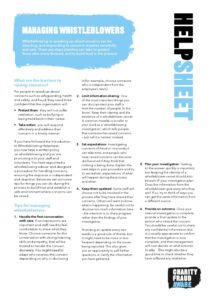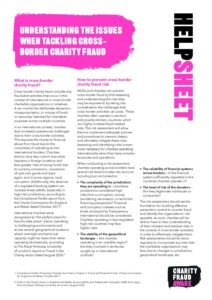Search Documents:
Whistleblowing
It is much easier to identify problems early and address them promptly if you have a simple, hassle-free way for staff and volunteers to raise concerns about fraud.
Moving money safely
Regardless of size, nature and complexity, every charity needs to move money safely if it’s to deliver its charitable objectives.
Keeping your charity safe in the pandemic and beyond
The coronavirus pandemic has created new vulnerabilities which fraudsters and cybercriminals may exploit.
Internal counter fraud communications
Good internal communications about fraud can lead to a well-informed, engaged and empowered workforce and a more fraud-resilient, ethical charity.
Getting to know your staff
Performing proper due diligence in all staff and recruitment matters is an essential part of getting to know the people who work for you.
Getting to know your grant holders
Every charity needs proper safeguards to protect its grant funding resources from misuse in financial crime, money laundering, terrorism or other criminality.
Financial crime risks
Charities working internationally can face financial crime risks due to the environments they operate in. It is essential these risks are assessed and controlled.
Cyber security
Some simple, low-cost security measures can go a long way towards improving a charity’s cyber defences and protecting its funds, people and data.
Board support for counter fraud
Gaining board-level support for counter fraud initiatives is a critical first step towards establishing effective fraud defences.
Qualification fraud
Some people and organisations that deliver exams and assessments might be exposed to incentives, and that can increase the risk of fraud or malpractice.
Volunteer fundraising fraud
A small number of fundraisers are not well intentioned, or they start out with good intentions but find the allure of cash hard to resist.
Keeping personal data safe
Protecting personal data from accidental, negligent or malicious loss and theft should always be a high priority.
Getting to know your volunteers
Conducting proper due diligence as part of volunteer recruitment and management is an essential part of getting to know them.
Calculating losses from housing tenancy fraud
A new, rigorous, standard formula for measuring the costs of tenancy fraud.
Fundraising event fraud
If a charity benefits from events it needs to protect the proceeds, identify financial irregularities and recover any money that’s overdue.
Getting to know your donors
Due diligence checks on your donors can help you to understand where your charity’s money is coming from.
Fundraising at times of crisis
Charities provide lifelines to those in need during times of crisis. But whenever large sums are raised there is a risk that fraudsters may try to take advantage.
Charity retail fraud
Because charity shops often operate on a greater level of trust than regular retail outlets they can sometimes be seen as soft targets for both shoplifters and corrupt staff or volunteers.
Creating an anti-fraud policy
An anti-fraud policy sets out a charity’s stance on preventing, detecting and responding to fraud.
Donating through crowdfunding sites
Find out how to make sure your donations will help the people and causes you care about when donating through crowdfunding sites.
Speaking to volunteers about charity fraud
Utilizing both your volunteers and staff could protect your organisations from the insider fraud threat.
Managing Whistleblowers
Making sure your staff feel safe and comfortable coming forward if they spot fraud.
Understanding the issues when tackling cross-border charity fraud
What are the steps you can take if your charity works across boarders?
